While the issue of women's rights seems to be receiving more attention in the media - in line with current trends such as #womensupportingwomen and #challengeaccepted - which means that women's empowerment remains contested. For Aide et Action, an international non-profit organization, empowerment means developing autonomy over one's own future, made possible by education.
For some, participating in the latestInstagram sharing black and white photos of oneself and nominating others to do the same is a show of solidarity and a call to promote women's empowerment. Others argue that this act of photo sharing is not advocacy and criticise it as an excuse to post a selfie for a fuzzy cause.
At the time of writing, this viral trend has seen more than 8 million people share the hashtag #womensupportingwomen. Regardless of the claims, one thing is clear: women's empowerment is a term that is getting more and more attention and an issue that the NGO Aide et Action is also highlighting through its new international campaign Emancipated Education.
A starting point
For NGOs like Aide et Action, emancipation is synonymous with the development of autonomy over one's own future. Concerned with improving access to education for the most vulnerable and marginalized populations in the world, especially girls and women, the association maintains that education offers the possibility of building a more egalitarian, just and sustainable future.
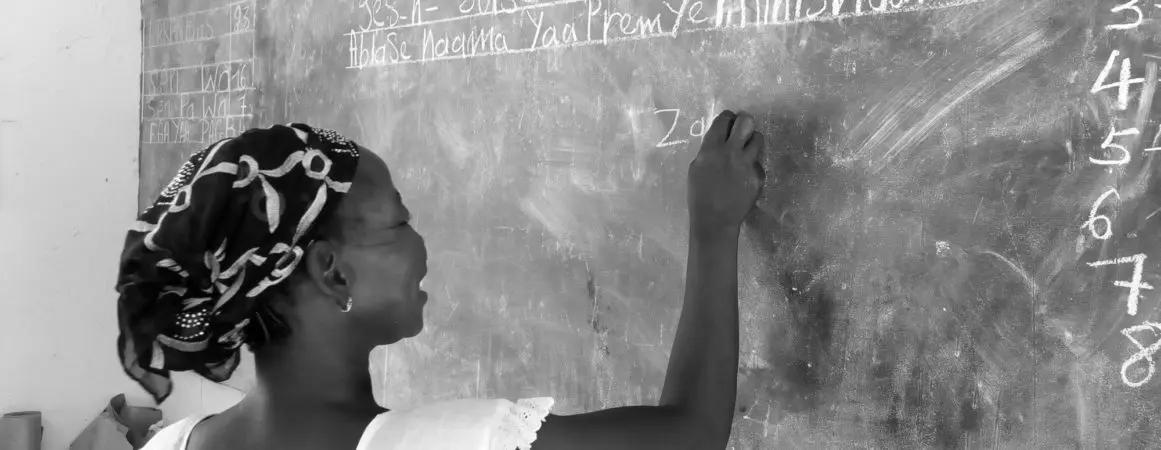 In Burkina Faso, women are gaining autonomy and economic empowerment thanks to Aide et Action's adult literacy and vocational training projects. Photo credit: Isabelle Merny, 2017.
In Burkina Faso, women are gaining autonomy and economic empowerment thanks to Aide et Action's adult literacy and vocational training projects. Photo credit: Isabelle Merny, 2017.
At the launch of Aide et Action's new campaign, Vanessa Perette, International Fundraising Director, emphasized the importance of education in deconstructing harmful stereotypes. "The fight against gender inequality starts at the school gates and in education. Deconstructing the mental and social representations built around women cannot be done without the participation of all: men, women, children, teachers, local and global leaders, communities, governments and more," she said.
While women supporting women can be a good source of conversation, to achieve a more equal future, women's empowerment must be a shared vision for all. Often the future is already planned and not in the hands of the marginalised individual but in the hands of the greatest powers at play - community leaders, local authorities, policy makers, parents, teachers, governments, institutions, business leaders and more.
Exclusion in education
In 2019, theUNESCO pointed out that twice as many girls as boys should never start school, leaving 16 million girls aged 6-11 without primary education, compared to about 8 million boys.
Worldwide, 620 million children do not have access to single-sex toilets at school, which also prevents girls and female teachers from attending school safely. According to recent findings by WaterAidIn South Asia, this lack of sanitation causes one third of girls to miss between one and three days of school each month during their menstrual period.
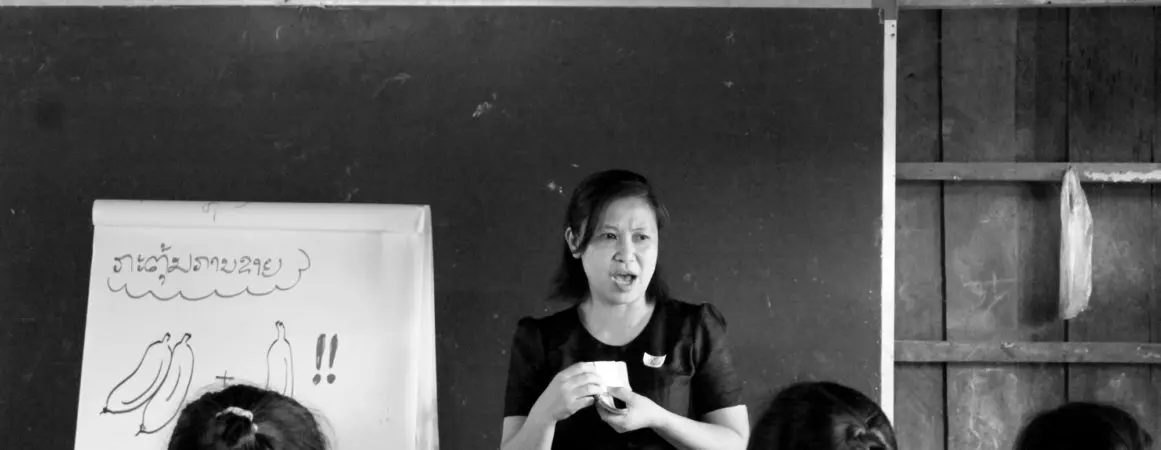
Young ethnic minority women in Laos learn business skills in an entrepreneurship workshop supported by Aide et Action. Photo credit: Aide et Action Laos, 2019
When a girl is denied the chance to go to school, the consequences can be devastating. Women alone account for 63% of the 750 million illiterate adults in the world. Speaking on the issue of education and women's empowerment, director Anastasia Mikova describes inequitable access to education as an issue that we must urgently address.
In WomanThe film, which Mikova co-directed with Yann Arthus-Bertrand, gives voice to 2,000 women in 50 different countries, providing an intimate portrait of women's experiences around the world. Mikova's key takeaway from the project is that women who have not attended school are much more likely to face forced marriage and domestic violence.
Every year, 15 million underage girls are married, often causing them to miss out on school. Today, more than 700 million women are married before the age of 18, representing almost 10% of the world's population. Every year around the world, about 16 million girls aged 15-19 and 2 million girls under 15 give birth. 18 countries have no laws, policies or strategies to protect the right of girls to return to school after pregnancy.
A global effort
Aide et Action is working all over the world to reduce the obstacles that women face in accessing education.
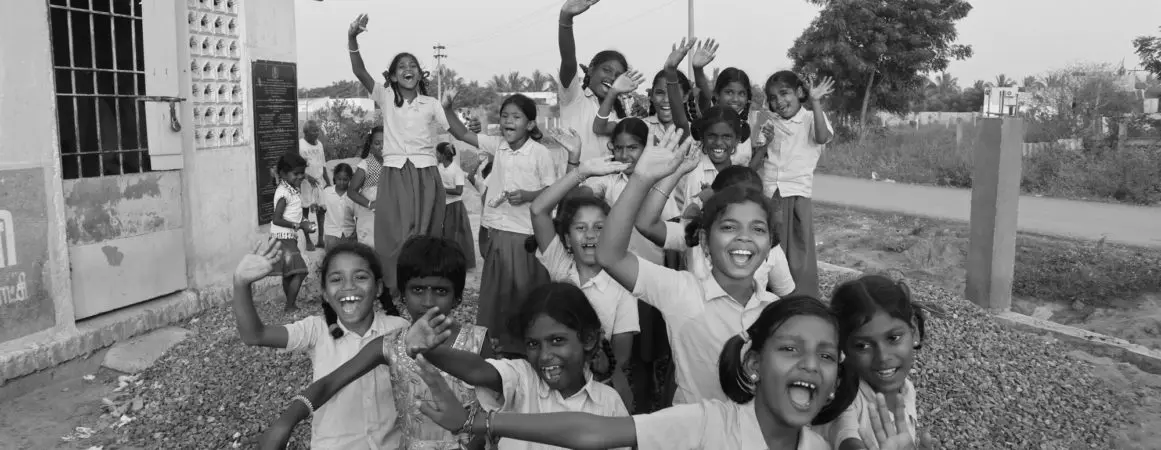
In India, Aide et Action's Enlight project is improving access to education for primary school-age children in ten cities. Photo credit: Sandrine Assouline, 2018.
In India, where being born a woman too often means that a girl will be deprived of an education, Aide et Action has been implementing a project called Enlight which helps marginalised girls of primary school age in ten towns gain access to education. "When we started our project, we first had to convince the communities of the need to send their daughters to school. Meetings were held once or twice a month to discuss this with the families, especially the mothers," says Albert Bosgo, who is responsible for the Enlight project in Chennai, India. Today, Bosgo is pleased to see a big change in community attitudes towards education, where adults and children are now convinced that education is the only way to break the cycle of poverty in which many have been trapped.
In Burkina Faso, West Africa - where illiteracy and lack of access to loans and land for women are barriers to equality - the Learning for Change: APC of the organisation enables Burkinabe women to become financially independent through literacy courses, vocational training and financial support.
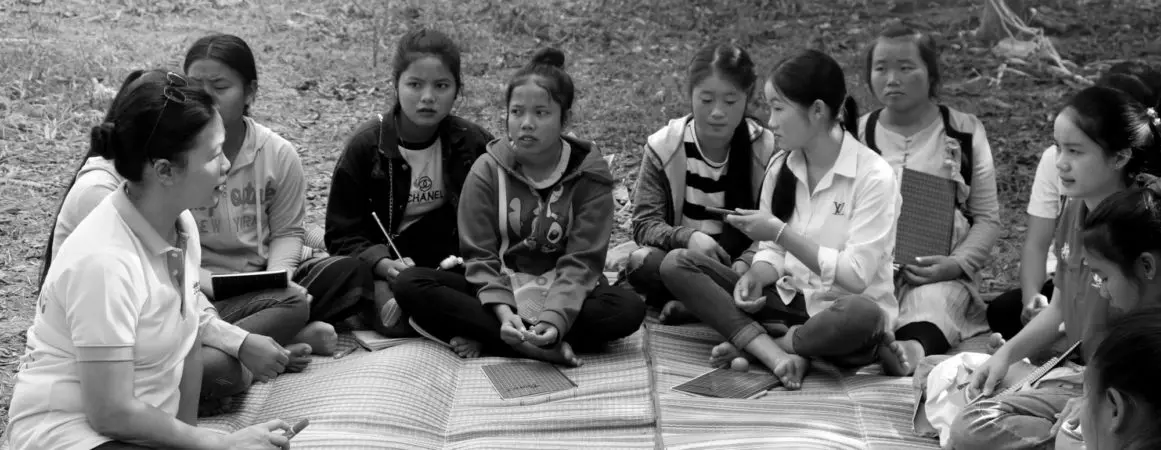
Young ethnic minority women in Laos learn business skills at an entrepreneurship camp supported by Aide et Action. Photo credit: Aide et Action Laos, 2020.
In Southeast Asia, gender disparities are found in upper secondary education where in Laos, for example, girls' attendance rates are lower than 50%. This disparity is directly linked to ingrained norms that support expected gender roles, whereby unpaid domestic and care work is given to women and economically productive work is given to men. In 2019, Aide et Action launched a leadership and entrepreneurship workshop for young women in Laos, supported by the British Embassy Program Fund.
The workshop was designed to be an empowering opportunity for rural ethnic women and girls aged 14-22 to gain skills and experience not found in a typical classroom. The aim was to equip the girls not only with the business acumen and skills they desired, but also with the courage and confidence to express their opinions and take on leadership roles in their communities.
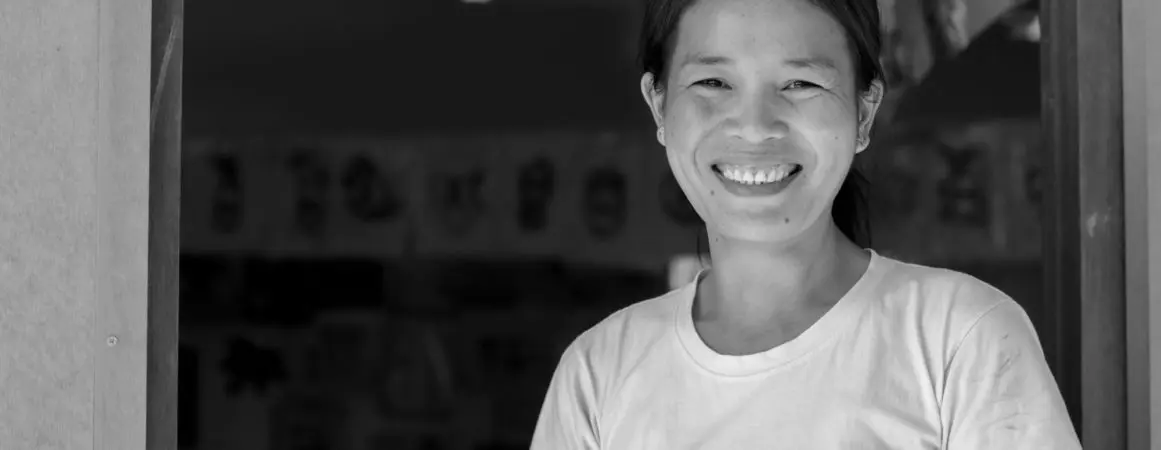
Suon Sokhom has spent almost a decade as a pre-school teacher in a rural village in Kep province, Cambodia. Photo credit: Christine Redmond for Aide et Action, 2020.
In rural Cambodia, many girls may be pressured to leave school early to marry and start a family or to help their families with agricultural or domestic work. Pre-school teacher Suan Sokhom dropped out of school in Grade 10 to get married. Without a full education, she would never have imagined that she would have the opportunity to become a preschool teacher, but against all odds, she joined one of Aide et Action's projects and in eight years, she trained as a preschool teacher and became the first in her community committed to providing quality early childhood care and education to marginalized children in her village. "I am not the same person I was before the project - I have gained confidence and become a respected and valued person in my community," explained Sokhom.
"Our experience shows that young women, especially rural women from poor backgrounds, become leaders for their communities," said Dr Rukmini Rao. A psychologist, activist and Indian magazine's 'Woman of the Year' in 2014, Dr Rukmini Rao has been a member of Aide et Action's board since 2011. Speaking about the campaign THE Education Émancipe of the organisation, it attests that if girls have access to education, then they have the opportunity to become agents of change.
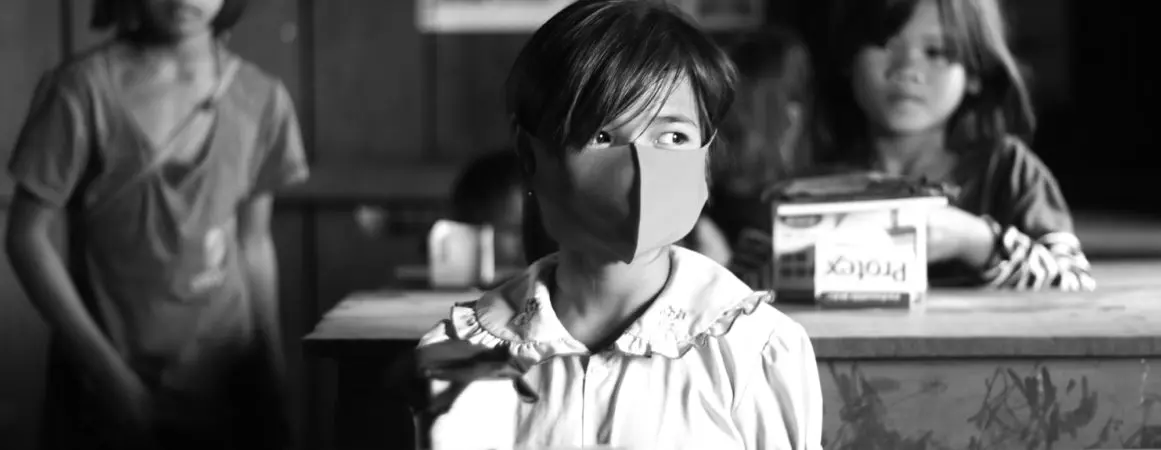
In rural Cambodia, ethnic minority students receive hygiene education and supplies from Aide et Action to help them protect themselves and their communities from the spread of Covid-19. Photo credit: Christine Redmond, 2020.
Moving forward in solidarity
According to Charles-Emmanuel Ballanger, International Director of Aide et Action, advocating for girls' education and women's literacy is essential, but not enough. "Currently, girls' education is still hampered by many factors: poverty, discrimination, early marriage and pregnancy, unsafe environments and more... we need to take urgent action," he said.
According to the World Economic ForumAt the current rate (before theCovid-19 epidemic which could set things back even further), it will take 108 years to close the gender gap and 202 years to achieve parity in the world of work. While Instagram trends such as #womensupportingwomen can initiate dialogues on important issues, there is still a lot to be done to increase women's participation in society and according to organisations such as Aide et Action, this challenge starts with education.






